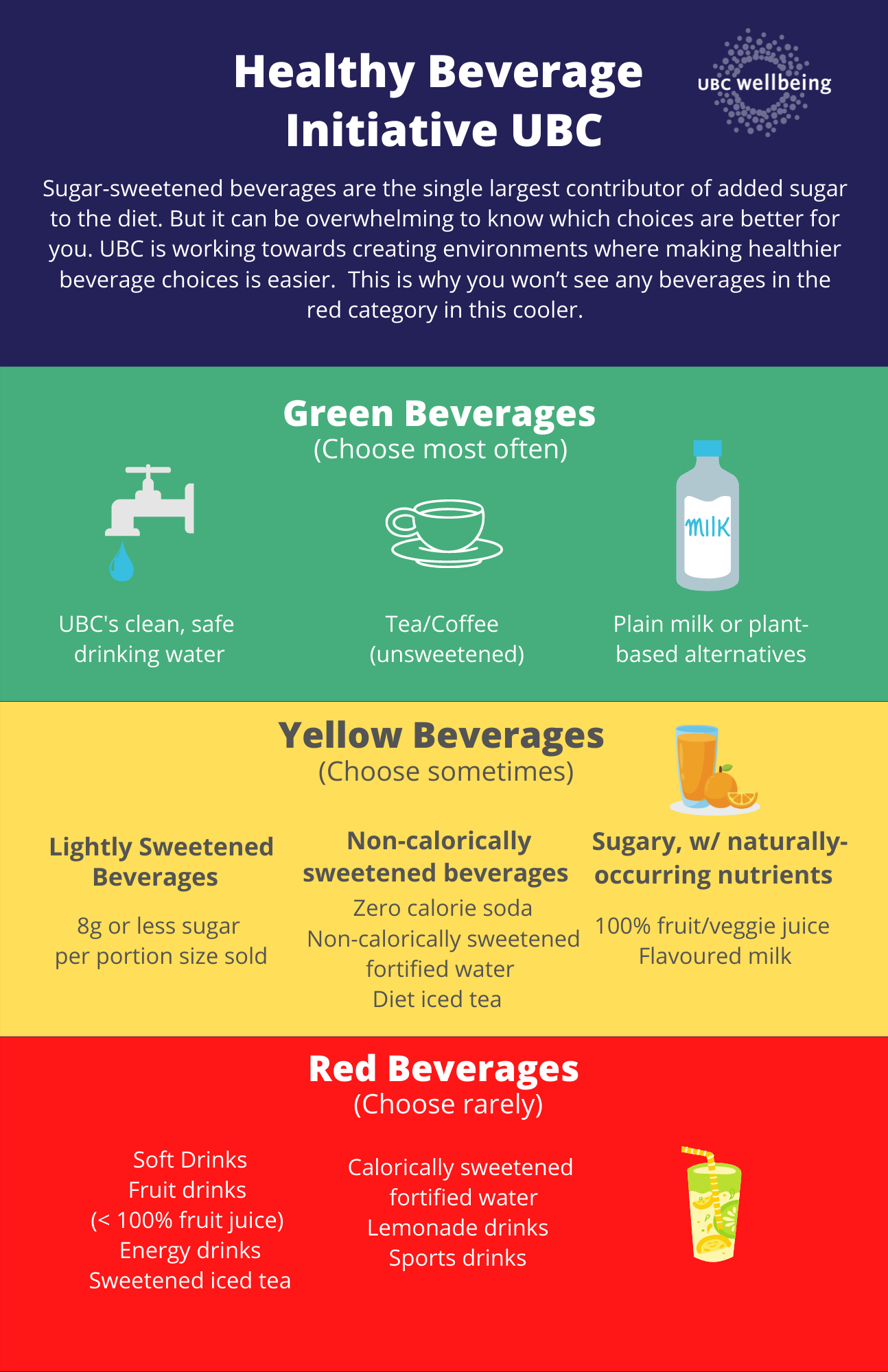Phasing out the sale of sugar-sweetened beverages, and promoting healthier choices as part of an overall healthy food environment strategy is a sensible and impactful initiative, that has been effective on campuses and in institutions worldwide. In fact, UBC consulted with several institutions across the globe that have implemented their own healthy beverage initiative.
Implementing a healthy beverage initiative at UBC is complex; with a varied food and beverage landscape, made up of many different types of stakeholders, it was important that the HBI was supported across our campuses, and aligned with UBC's approach to embedding and operationalizing wellbeing in all aspects of campus life, as outlined in the Okanagan Charter calls to action.
What's a sugar-sweetened beverage?
The not-so-sweet stats about sugar-sweetened beverages
Sugar is everywhere— from cookies and packaged snacks to hiding in everything from yogurt, to bread, to baby food. That sweet stuff is seriously addictive, and we've become so accustomed to having it added to our food, that we may not even notice it at times. So why tackle sugar-sweetened beverages? Why not cut the candy from vending machines, or muffins from our morning routine?
*Taken from Heart and Stroke Foundation HEALTH AND ECONOMIC IMPACTS OF SUGARY DRINKS IN CANADA Research summary
Getting started with a Healthy Beverage Initiative
Considering the alarming health and economic burden caused by drinking sugar-sweetened beverages, UBC Wellbeing and the Food and Nutrition Working Group collaborated with students, staff, and faculty stakeholders, to explore ways to better promote drinking water and reduce sugar-sweetened beverage consumption at UBC.
UBC also looked to institutions like the University of Michigan, and the University of San Francisco, who have both implemented healthy beverage initiatives on their campuses, for knowledge sharing and background on where to start.
The Healthy Beverage Initiative at UBC is a complex undertaking with both fiscal and operational considerations. Community input was crucial in determining the best approach to this initiative; UBC Wellbeing led a number of engagement sessions and surveyed faculty, staff and students to ensure that a range of perspectives and interests were represented. All major food-provider stakeholders at UBC — Student Housing and Hospitality Services, Athletics & Recreation, UBC Okanagan Food Services, and AMS — have informed and championed this initiative from the beginning. Several key actions emerged from campus-wide engagement sessions and were approved by UBC Executive and the UBC Wellbeing Steering Committee in summer 2018:
Action 1: Encourage tap water consumption
Action 2: Promote healthier beverages choices in our community
Action 3: Modify our environment to support healthier beverage consumption
UBC's next steps include creating a vendor-certification program, which will support food and beverage providers in reducing or eliminating sugar sweetened beverages from their outlets. The program will be voluntary, but outlets that comply will be awarded HBI designation at UBC. Student-led research is informing this process, through programs such as Sustainability Scholars and SEEDS.
For more background on HBI:
For more on setting up an HBI designation program:
"Implementation of a Healthy Beverage Designation at UBC"
Author: Balanding Manneh, 2020
Sustainability Scholar Project

